Are fenders required on cars? While often overlooked, fenders are an essential part of vehicle design, serving both functional and safety purposes. These protective components not only help shield the vehicle from road debris but also play a key role in ensuring the safety of pedestrians, other vehicles, and the car itself.
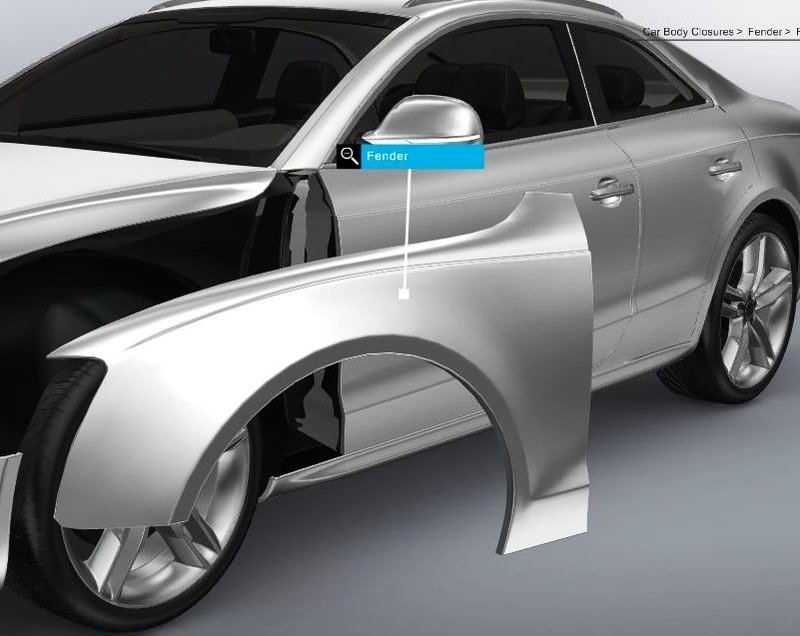
What Are Fenders?
Fenders are the curved panels that sit above the wheels of your car. They might not look like much, but they’re there to protect your vehicle and the people around it. When you drive, your tires kick up all sorts of debris—gravel, mud, water, and even small rocks. Fenders act as shields, preventing that debris from flying everywhere, answering the question, “Are fenders required on cars?”
Imagine driving on a muddy road without fenders. The mud would splatter all over your car, other vehicles, and even pedestrians. It’s not just messy—it’s dangerous. A loose rock could chip another car’s windshield, or flying debris could cause someone to lose control of their vehicle. This highlights why are fenders required on cars: they keep these potential hazards in check.
But they do more than just protect others. Fenders also shield your car’s body from damage. Without them, the debris kicked up by your tires could scratch your paint or dent the sides of your car. This might not seem like a big deal at first, but over time, it could lead to rust and other costly repairs.
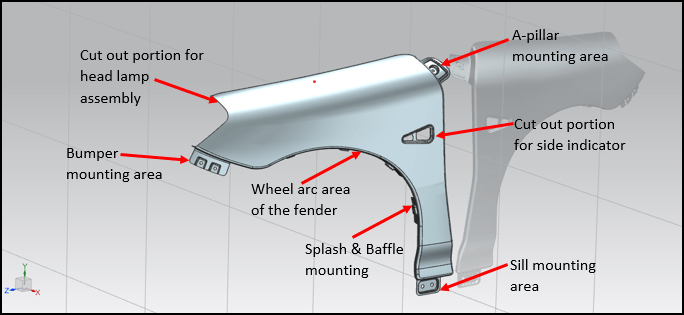
Why Fenders Are Necessary
So, are fenders required on cars? The short answer is yes—and for good reason. Fenders aren’t just about keeping your car looking good; they’re a crucial part of road safety.
1. Legal Reasons
In many places, having fenders on your car isn’t optional—it’s the law. Most countries have regulations requiring vehicles to have fenders or similar components like mudflaps. These laws are there to reduce the risk of accidents caused by debris. If you’re caught driving without fenders in some regions, you could face fines or even have your car declared unfit for the road.
2. Practical Benefits
Beyond the legal requirements, fenders make your driving experience safer and more practical. They help control the spray of water during rainy conditions, improving visibility for you and other drivers. Nobody enjoys driving behind a car that’s flinging water or mud in their face, right?
3. Protecting Other Road Users
Fenders are especially important for protecting pedestrians and cyclists. Imagine walking down the street and getting splashed with muddy water from a passing car—definitely not fun. Worse, a piece of gravel or metal could cause real harm. Fenders reduce the risk of such incidents, making the roads safer for everyone.
4. Off-Road and Weather Conditions
Fenders are even more critical if you live in an area with extreme weather or if you enjoy off-roading. Driving through snow, rain, or mud without proper fenders can create chaos. Not only does it make the roads more hazardous, but it also puts unnecessary wear and tear on your car.
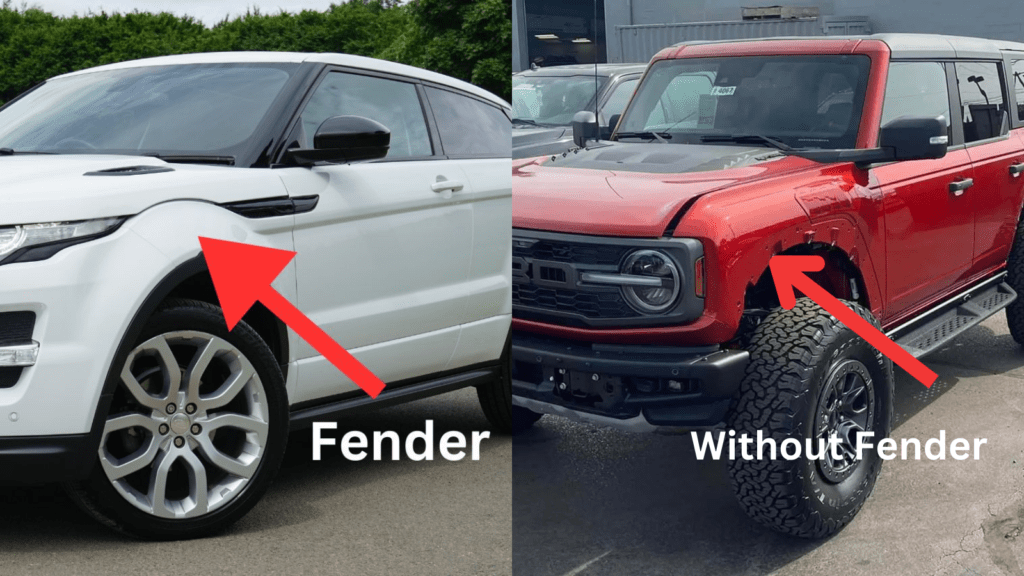
Legal Requirements for Fenders
Fenders play a crucial role in ensuring the safety and integrity of your boat and the docking area. Understanding the legal obligations surrounding their use can help you avoid potential fines and mishaps.
Are Fenders Legally Required?
Yes, in most places, fenders are a legal necessity for cars. Laws around fenders exist for a simple reason: to keep the roads safe for everyone. They’re part of the standard safety features on vehicles, designed to minimize hazards caused by flying debris.
In the United States, for instance, many states require cars to have fenders or mudflaps installed. The specifics vary—some states might only enforce this rule for larger vehicles like trucks or SUVs, while others have stricter regulations for all vehicles. In Europe, regulations are also strict, with most countries mandating fenders for cars to ensure road safety and comply with environmental cleanliness standards.
Penalties for Non-Compliance
What happens if you’re caught without fenders? That depends on where you’re driving.
- Fines: Many jurisdictions issue fines to drivers whose vehicles don’t meet fender requirements.
- Inspection Failure: In areas where vehicle inspections are mandatory, your car could fail the test due to missing or damaged fenders.
- Liability Risks: If your car causes an accident due to debris thrown from the tires, you might be held legally responsible for the damages.
Why These Laws Exist
Fender laws aren’t just bureaucratic red tape—they’re there to protect everyone on the road. By keeping debris in check, fenders reduce the risk of accidents, protect pedestrians, and ensure smoother traffic flow.
How Fenders Protect Vehicles
Fenders are essential components of a vehicle, designed to enhance safety and maintain structural integrity. They act as a barrier against external elements that could harm your car. This often raises the question, “Are fenders required on cars?” Their importance becomes evident when you understand the level of protection they offer.
Shielding Your Car From Damage
One of the most obvious benefits of fenders is that they protect your car’s body. Every time you drive, your tires pick up dirt, stones, and other debris. Without fenders, this debris would be flung directly at the car’s body, scratching the paint and potentially causing dents. Over time, these small damages can add up, leading to rust and structural issues. For this reason, many people wonder, “Are fenders required on cars?” The answer lies in their ability to safeguard the vehicle from such harm.
Reducing Wear and Tear
Your car’s undercarriage is another area that benefits from fenders. Mud and debris can accumulate in these hidden areas, leading to corrosion. Fenders help by limiting how much debris makes its way underneath the car, saving you from expensive repairs down the line.
Preserving Resale Value
A car that looks good sells better, right? Fenders help preserve your car’s paint job and overall appearance, which can make a big difference when it’s time to sell or trade in your vehicle. Nobody wants to buy a car that’s covered in chips and scratches.
Supporting Aerodynamics
Modern fenders are designed with aerodynamics in mind. By reducing drag caused by dirt and debris hitting the car, fenders help improve fuel efficiency. It’s not a massive impact, but every little bit counts, especially for long drives.
How Fenders Improve Road Safety
Fenders are more than just aesthetic components; they play a vital role in promoting safer driving conditions. By managing tire spray and debris, they contribute to a smoother and more secure journey.
1. Reducing Flying Debris
Fenders are like shields for your car’s tires. When you’re driving, especially at high speeds, your tires throw up everything they touch—rocks, mud, water, and even bits of metal. Without fenders, that debris becomes a hazard for everyone else on the road.
For example, a loose rock can hit the windshield of a car behind you. If it cracks the glass, it’s not just inconvenient—it’s dangerous. Similarly, mud or water sprayed from your tires can make it hard for other drivers to see clearly, increasing the chances of an accident.
Fenders help keep all that mess contained, making the roads safer for everyone.
2. Protecting Pedestrians and Cyclists
Have you ever walked along the road and gotten splashed by a passing car? That’s bad enough, but imagine if the car also threw a piece of gravel your way. For pedestrians and cyclists, fenders are lifesavers. They minimize the spray of water, mud, or debris, reducing the risk of injury or even just a bad day.
In urban areas with heavy foot traffic or bike lanes, this protection is even more critical. Cars without fenders can turn a simple drive into a hazard for others.
3. Preventing Accidents in Bad Weather
Rain and snow already make driving tough. Without fenders, they make it even worse. When your tires spray water or slush across the road, it can cause slippery conditions for the vehicles behind you. This increases the chances of skidding, losing control, or rear-end collisions.
Fenders help control that spray, improving visibility and traction for other drivers. In snowy conditions, they also prevent slush from freezing on your car’s undercarriage, which can interfere with your brakes or tires.
4. Enhancing Visibility for Other Drivers
Driving behind a car without fenders can feel like navigating through a storm. Mud, water, and dirt hit your windshield, forcing you to use your wipers constantly. This distraction can lead to slower reaction times and accidents.
With proper fenders, the mess stays close to the car, keeping the road ahead clearer for others.
Situations Where Fenders Are Critical
Fenders are vital in all driving conditions, but they truly shine in specific scenarios. Let’s look at when fenders matter the most.
1. Rainy Weather
Ever driven behind a car on a rainy day and had your windshield covered in spray? That’s what happens when a vehicle doesn’t have proper fenders or mudflaps.
Fenders help control water spray, ensuring better visibility for drivers behind you. Without them, the constant splash can make it nearly impossible for other drivers to see the road, increasing the risk of accidents.
2. Snow and Ice
Winter driving is tough enough without adding flying snow and ice into the mix. Cars without fenders can kick up slush that freezes on the road, creating slippery spots for other vehicles.
For your own car, fenders prevent snow from accumulating in the wheel wells and undercarriage, where it could freeze and affect your car’s performance.
3. Gravel Roads
Gravel roads are notorious for sending rocks flying. Without fenders, those rocks can damage your car, crack nearby windshields, or even injure pedestrians. Fenders act as barriers, keeping gravel where it belongs—on the ground.
4. Off-Road Adventures
If you’re into off-roading, you already know how messy it gets. Mud, dirt, and debris fly everywhere. Fenders aren’t just useful here—they’re essential. They keep your car protected from mud splashes and ensure you’re not turning trails into hazardous zones for others.
5. Urban Traffic
In cities, you’re constantly sharing the road with cyclists and pedestrians. Fenders prevent your tires from spraying them with mud or water, keeping everyone safer and happier
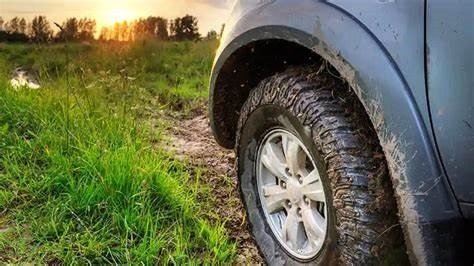
Types of Fenders for Cars
Not all fenders are the same. Depending on your needs, you can choose from a variety of materials and designs that suit your driving style and preferences.
1. Material Types
- Steel Fenders:
Steel fenders are strong and durable, making them a popular choice for heavy-duty vehicles like trucks and SUVs. They offer excellent protection against debris and minor collisions. However, they’re heavier than other options, which might slightly affect fuel efficiency. - Aluminum Fenders:
Aluminum is lightweight yet sturdy, making it a great choice for modern vehicles. These fenders are resistant to rust, which is a big plus if you live in an area with harsh winters or salty roads. - Plastic or Fiberglass Fenders:
If you’re into customization, fiberglass or plastic fenders are your best bet. They’re lightweight, easy to mold into unique shapes, and cost-effective. However, they’re not as strong as steel or aluminum, so they’re better suited for style rather than heavy-duty use. - Carbon Fiber Fenders:
For those who want a high-performance look, carbon fiber fenders are sleek and ultra-lightweight. These are typically used in sports cars and high-end vehicles. The downside? They’re expensive.

2. Fender Styles and Designs
- Stock Fenders:
These are the standard fenders that come with your car. They’re practical, functional, and designed to fit the car’s overall look.
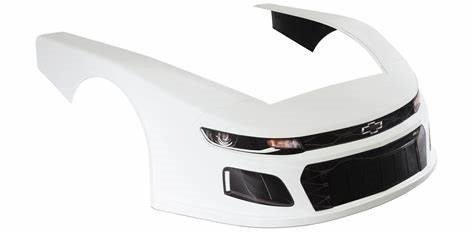
- Wide-Body Fenders:
Perfect for car enthusiasts, wide-body fenders provide a sportier look. They also allow for larger tires, which can improve performance and handling.
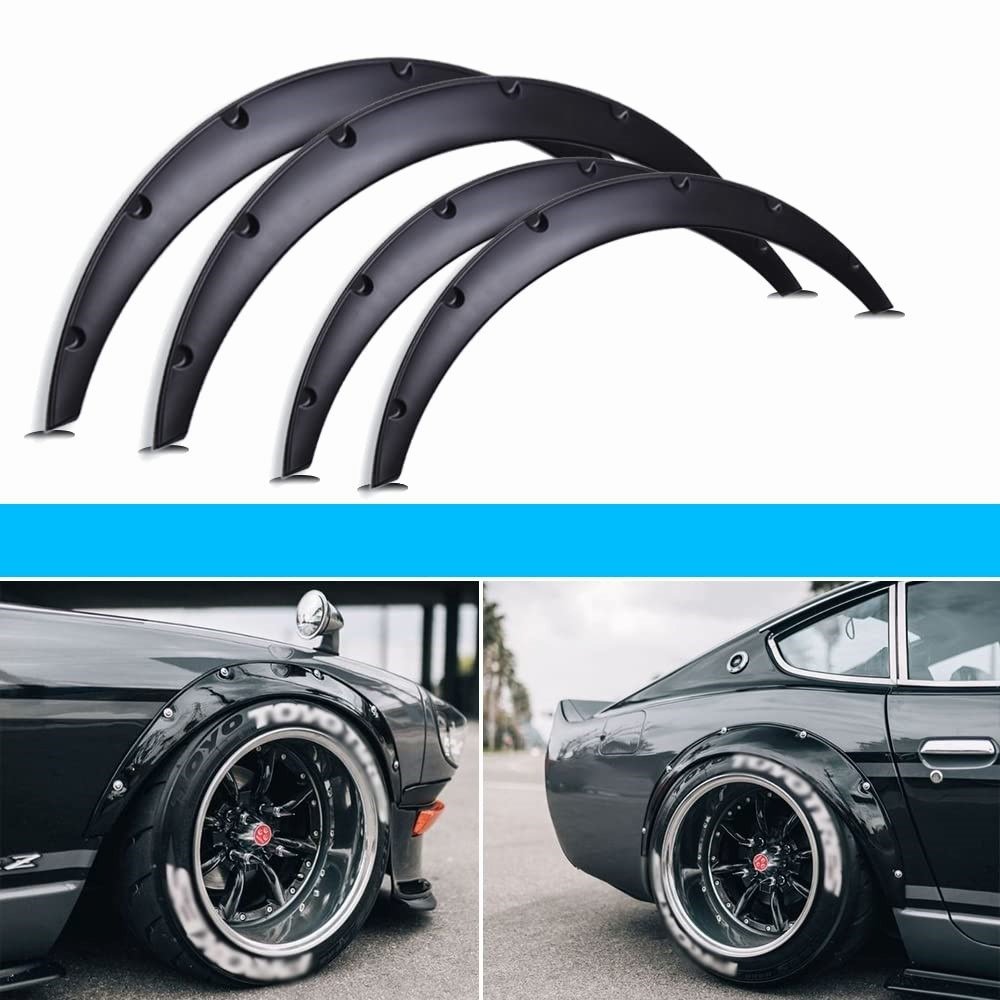
- Custom Fenders:
Whether you’re restoring a classic car or building a hot rod, custom fenders let you add a personal touch. You can choose unique shapes, colors, and materials to match your vision.
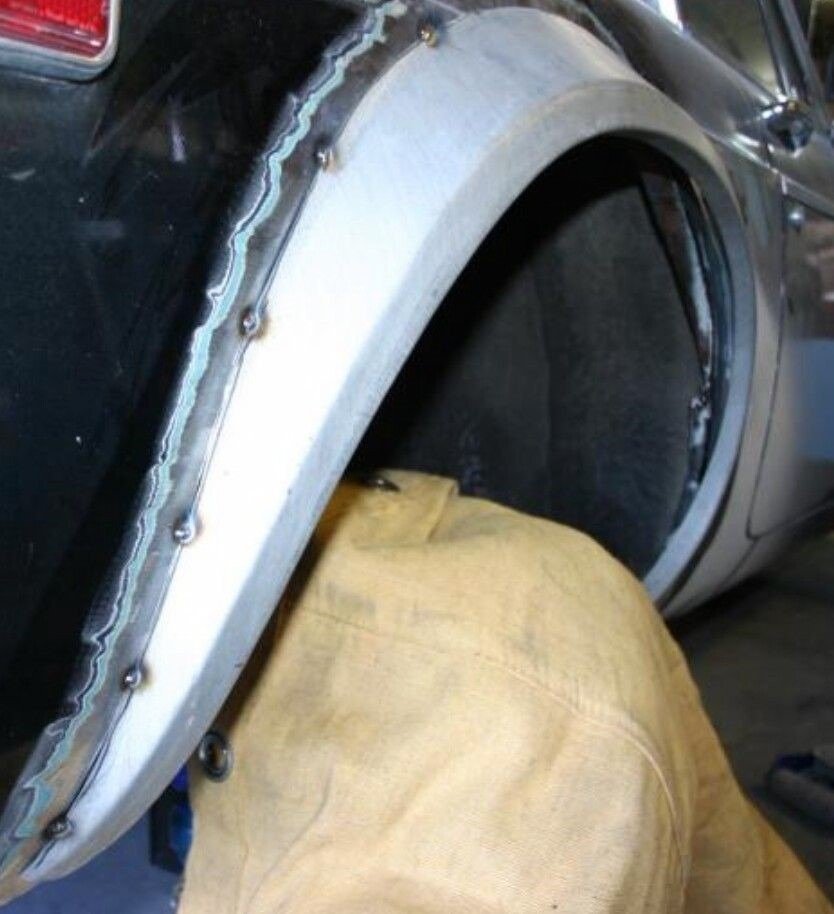
- Off-Road Fenders:
Designed for durability, these fenders are built to withstand rough terrains. They’re usually wider and sturdier, offering better protection during off-road adventures.
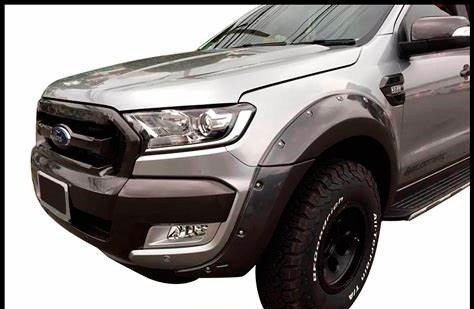
When it comes to the manufacturing of car fenders, various factors influence their production process, such as material choice and location. To dive deeper into the specifics of where car fenders are made and the countries that lead this production, make sure to check out our detailed article on the global manufacturing of car fenders for more insights.
Fenders and Customization
Fenders aren’t just functional—they’re a statement piece. Customizing your fenders can elevate your car’s look and even improve its performance.
1. Personalizing Your Ride
Custom fenders allow you to stand out on the road. Whether it’s a bold paint job, unique shapes, or added details like flares, personalized fenders reflect your style. Many car owners use fender customization to give their vehicles a sporty, aggressive, or classic look.
2. Enhancing Performance
If you’re into racing or off-roading, custom fenders can improve your car’s aerodynamics and handling. Wider fenders, for example, allow for larger tires, which provide better grip and stability.
3. Balancing Style and Function
While custom fenders can look amazing, it’s important to balance aesthetics with practicality. For example, flashy fenders made from lightweight materials might not hold up well in rough conditions. Make sure your choice fits your driving habits and local laws.
Where to Buy Fenders for Your Car
If you’re looking to replace or upgrade your car’s fenders, there are a variety of options available online. One convenient place to explore a wide range of car fenders is Amazon. Whether you’re looking for steel, aluminum, plastic, or even custom designs, you can find fenders that suit your car’s needs and style. Check out the latest options and make your purchase easily by visiting Buy Car Fenders Here on Amazon.

Conclusion:
Fenders are not just a stylistic addition to vehicles—they are essential for safety, functionality, and legal compliance. Many drivers wonder, “Are fenders required on cars?” The answer lies in their critical role in protecting your car from damage, ensuring the safety of pedestrians and other drivers, and enhancing your overall driving experience. From shielding against flying debris to maintaining visibility in adverse weather conditions, fenders are indispensable for modern road safety. Whether you’re commuting in urban traffic, exploring gravel roads, or enjoying off-road adventures, ensuring your vehicle has proper fenders is both a smart and responsible choice.
FAQs: Are Fenders Required on Cars?
Fenders serve as a critical part of a vehicle’s design and functionality, raising common questions about their necessity and role.
1. What is the primary purpose of fenders on cars?
Fenders serve to shield your car and other road users from debris like rocks, mud, and water kicked up by your tires, improving safety and minimizing damage.
2. Are fenders legally required on all vehicles?
Yes, in most regions, fenders or equivalent components like mudflaps are legally required to ensure road safety. Regulations vary, so it’s essential to check your local laws.
3. Can I drive without fenders if my car is in good condition?
No, driving without fenders can lead to legal penalties and safety risks. Missing fenders increase the chance of causing accidents due to debris.
4. How do fenders enhance road safety during bad weather?
Fenders control the spray of water, mud, and slush, reducing visibility issues for other drivers and minimizing slippery conditions on the road.
5. What types of materials are fenders made from?
Fenders are commonly made from steel, aluminum, plastic, fiberglass, or carbon fiber, with each offering varying levels of durability, weight, and cost.
6. Are wide-body fenders better than stock fenders?
Wide-body fenders are ideal for car enthusiasts looking for a sportier look or larger tires. However, stock fenders are sufficient for standard safety and functionality.
7. Do fenders improve vehicle performance?
While their primary role is safety, modern fenders can enhance aerodynamics by reducing drag, leading to slight improvements in fuel efficiency.


